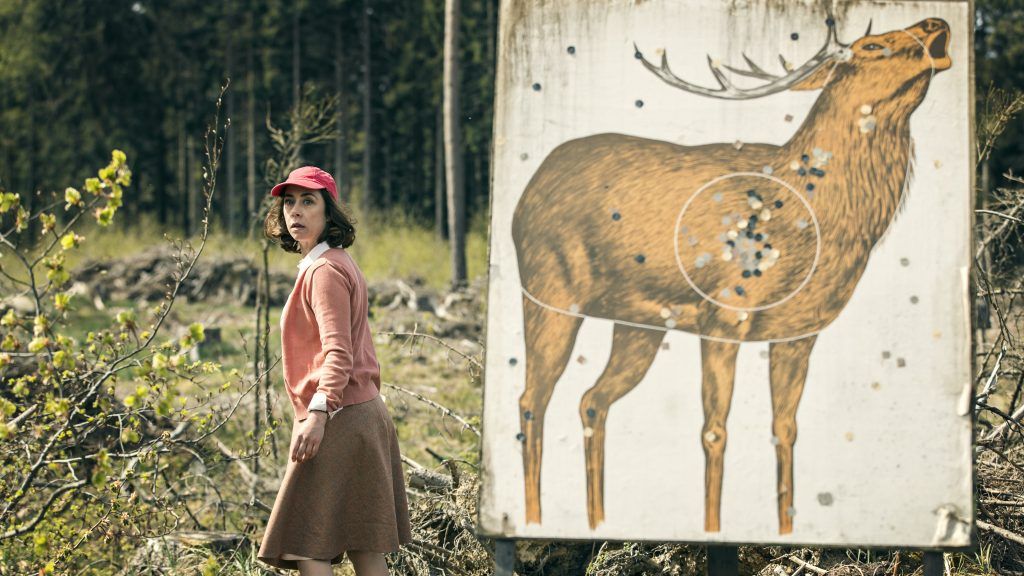In ‘The House That Jack Built’, Lars Von Trier pours out his dark heart and soul. The film pulls no punches, stabbings, shootings or incisions. ‘The House That Jack Built’ is undoubtedly a great work of art. Whether you like it or not is another matter.
The majority of films today are pure commercial entertainment. There is nothing wrong with this. Marvel and Disney create jobs for thousands, and if you are looking for a laugh, maybe cry, and to shovel popcorn into your mouth, then these studios are your go-to.
‘The House That Jack Built’ is a film of dark heart and twisted mind. The film is shocking. It contains scenes that cannot be unseen. The discomfort in the cinema during the screening was palpable.
Directed with cast-iron certainty
Von Trier’s brilliance has always been to elevate a story through the choice of emblematic and charismatic actors.
Matt Dillon delivers a pitch-perfect performance that supports all he works with – ‘all’ as in ‘all’ emotionally and artistically invested. This is no ‘for the money’ venture.
And a special shout out to Sophie Gråbøl, as her scenes are jaw-stopping and immaculate. As an actor, she meets Dillon head on, and Dillon rises to meet her. The scene itself is heart-stopping in its cruelty.
From the get-go, the influence of ‘Dante’s Inferno’ rages supreme. The inferno is a poem about, among other things, a man’s midlife crisis. Over the course of the five ‘episodes’ of Jack’s life as a serial killer, Von Trier uses this to brilliantly, and I mean brilliantly, capture the spirit of a middle-aged man in crisis – as well as the spirit of a male serial killer, obviously.
Underpinning this is the spine-tingling presence of Bruno Ganz. For the majority of the film, he is but a voice, who Jack names as ‘Virge’, who listens with a more-or-less objective ear to Jack’s increasingly defective philosophical musings. Ganz’s voice, and eventual presence, continually lifts the film to a higher purpose.
Them houses are going to burn
The fantastic red herring of the film is that Jack attempts to build his house over and over, tearing it down at the slightest perceived imperfection and starting from scratch. At first he succeeds at passing this off as a higher standard as an architect and creator, but gradually it becomes clear that these unfinished houses are symbols of his impotence and his inability to exist in society.
Jack cannot find peace until, that it, he finishes his final, most gruesome house. The symbol of his true nature, the completed house, is to be witnessed by the society that rejected him, the recognition of his nature that he feels he deserves.
The stylistic shift at the end of the film is simply spectacular. It takes the obvious questions usually posed of the male serial killer psyche, and of violence against women that any average artist could ask, and elevates it to the level of great art. It takes the grandiose ramblings of an insane misogynist who has ingratiated himself as our narrator, and it cuts them down to size.
Calling out the Cosbys out there
But then the question becomes: do we need another homage to the male serial killer? Do we need to see what a man might do to a woman, were he not held back by our civilised society? Most women know the answer to this without needing to watch 2 hours and 35 minutes of graphic violence. So what does the film provide us with that we don’t, in theory, already know?
The downside of this film is the clear misogyny. Women are presented as stupid, annoying and the victims of obvious manipulation. In this way, ‘Jack’ is precisely not the man whose opinions on women should be in any way entertained. One shudders to think that there are men out there that do.
‘The House That Jack Built’ opened CPH PIX on the same day Bill Cosby was sentenced. Is it ironic or just a terrible symptom of a patriarchy that is hopefully facing its reckoning.
Like all art, not for everyone!
If you are looking for the next entertainment escape, ‘Captain Marvel’ comes out soon enough. However, if you are looking for a film that tests your ability to feel, that leaves you profoundly disgusted and moved and strangely hollow all at the same time, that takes some days before you even know how you feel about what you have just seen, then this film is the one.
This film tests us. It forces us to take a stand. It is beyond provocative. There is no attempt to titillate, only the terrible, pragmatic actions of a sociopath. George Orwell famously said of Salvador Dalí that he was an undeniably great artist. He just did not like his work. I did not like this film but thought it brilliant. This film is undeniably a great work of art and Von Trier continues to walk with Dreyer, Tarkovsky and Kurosawa.
I lead and run the Copenhagen Film and Theatre School. Since the start I had a vision that our graduates would have the skills, temperament and passion to be actors for the likes of Von Trier, David Lynch and Akira Kurosawa. This film only compounds this vision and in this way I was very proud to see a former student, the brilliant Tine Hammerbo, in the film.


